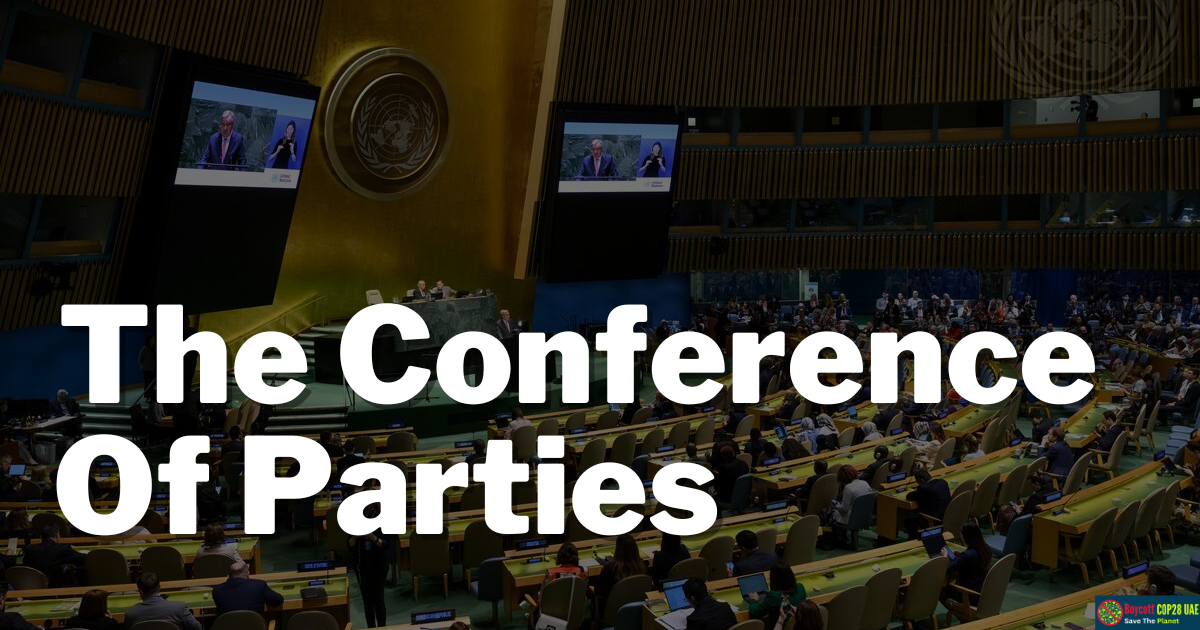The Convention on Climate Change is governed by the Conference of Parties, commonly referred to as COP, which serves as its highest decision-making authority. This international gathering plays a vital role in addressing the global climate crisis by bringing together representatives from all countries that are parties to the Convention. During these meetings, they review the implementation of the Convention, adopt legal instruments, and make critical decisions to promote its effective execution, including establishing institutional and administrative arrangements.
Importance of COP28
The importance of COP28 cannot be overstated. This conference represents another significant opportunity for countries worldwide to unite and take decisive action against climate change. With global temperatures rising, COP28 serves as a crucial platform to assess the progress made since the previous conferences and to set more ambitious targets and strategies for mitigating climate change and its adverse effects. Additionally, COP28 provides a platform for countries to collaborate and support one another in implementing innovative solutions to combat climate change, ensuring a sustainable and livable planet for future generations.
A Glimpse of Past COPs
- COP 27 – Sharm el-Sheikh, Egypt: The November 2022 conference highlighted the pressing need for urgent action to address climate change’s far-reaching consequences
- COP 26 – Glasgow, United Kingdom of Great Britain and Northern Ireland: Held in October-November 2021, COP26 was a pivotal event where countries aimed to strengthen their commitments to limit global warming and promote clean energy transitions
- COP 25 – Madrid, Spain: The December 2019 conference underscored the importance of cooperation among nations to achieve meaningful climate action
- COP 24 – Katowice, Poland: In December 2018, COP24 focused on finalizing the Paris Agreement’s rulebook to facilitate its implementation
- COP 23 – Bonn, Germany: The November 2017 conference emphasized the significance of increasing climate resilience and adaptation efforts
- COP 22 – Marrakech, Morocco: Held in November 2016, COP22 highlighted the need for international cooperation to combat climate change’s adverse effects, particularly on vulnerable nations
- COP 21 – Paris, France: The landmark Paris Climate Change Conference in November 2015 resulted in the historic Paris Agreement, where countries pledged to limit global warming well below 2 degrees Celsius
- COP 20 – Lima, Peru: The December 2014 conference focused on enhancing countries’ voluntary pledges to cut emissions
- COP 19 – Warsaw, Poland: In November 2013, COP19 addressed crucial issues like loss and damage, providing support to affected countries
- COP 18 – Doha, Qatar: Held in November 2012, COP18 emphasized the importance of developed nations in providing financial assistance to developing countries for climate adaptation and mitigation
- COP 17 – Durban, South Africa: The November 2011 conference led to the establishment of the Durban Platform, outlining a roadmap for a new global climate agreement
- COP 16 – Cancun, Mexico: COP16 saw significant progress, including the establishment of the Green Climate Fund, helping developing nations tackle climate change challenges
- COP 15 – Copenhagen, Denmark: The Copenhagen Climate Change Conference in December 2009 aimed to achieve a legally binding global climate agreement but resulted in the Copenhagen Accord, a political agreement
- COP 14 – Poznan, Poland: Held in December 2008, COP14 emphasized the importance of technology transfer to assist developing countries
- COP 13 – Bali, Indonesia: COP13 resulted in the Bali Roadmap, outlining the negotiation process for a future climate agreement
- COP 12 – Nairobi, Kenya: In November 2006, COP12 addressed issues related to climate change adaptation and technology transfer
- COP 11 – Montreal, Canada: COP11 resulted in the Montreal Action Plan, advancing global efforts to combat climate change
- COP 10 – Buenos Aires, Argentina: Held in December 2004, COP10 addressed issues like capacity building and technology transfer
- COP 9 – Milan, Italy: COP9 focused on the entry into force of the Kyoto Protocol and the promotion of sustainable development
- COP 8 – New Delhi, India: The October 2002 conference aimed to operationalize the mechanisms established under the Kyoto Protocol
- COP 7 – Marrakech, Morocco: Held in October 2001, COP7 addressed various technical and operational issues related to the Kyoto Protocol
- COP 6-2 – Bonn, Germany: An additional meeting was held in July 2001 to continue negotiations on outstanding issues from COP6
- COP 6 – The Hague, Netherlands: Held in November 2000, COP6 aimed to finalize the implementation of the Kyoto Protocol but experienced challenges and adjourned to Bonn in July 2001
- COP 5 – Bonn, Germany: COP5 focused on addressing remaining issues regarding the operationalization of the Kyoto Protocol
- COP 4 – Buenos Aires, Argentina: The November 1998 conference aimed to ensure the effective functioning of the Kyoto Protocol
- COP 3 – Kyoto, Japan: The December 1997 conference resulted in the Kyoto Protocol, which set binding emission reduction targets for developed countries
Does UAE Care About Climate Change?
- The UAE’s energy sector relies heavily on fossil fuels, accounting for over 90% of the country’s electricity generation. This makes the UAE a major contributor to greenhouse gas emissions
- The UAE has been criticized for lacking transparency in its climate change policies. The country has not released a comprehensive emissions inventory since 2012, and it is unclear how it plans to achieve its net-zero emissions target by 2050
- The UAE has been accused of greenwashing or using environmental rhetoric to promote its image without taking meaningful action to address climate change. For example, the UAE has invested heavily in renewable energy projects, but these projects have been largely focused on exporting electricity rather than meeting domestic demand
Conclusion
The COPs have become instrumental in shaping the global response to climate change. These conferences allow countries to collaborate, share knowledge, and make critical decisions that can impact the future of our planet. As we look forward to COP28 and beyond, nations must collectively renew their commitment to combat climate change. Only through unified and ambitious action can we hope to safeguard our environment for generations to come.






